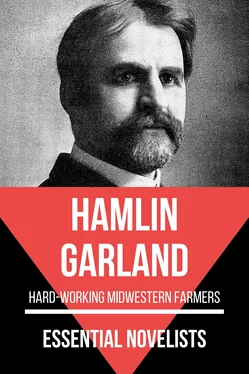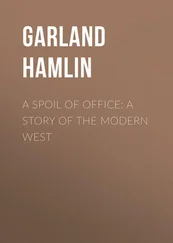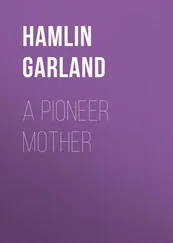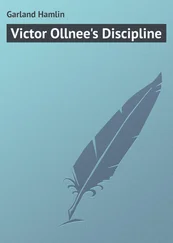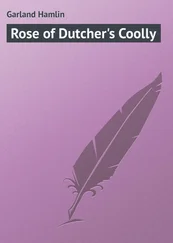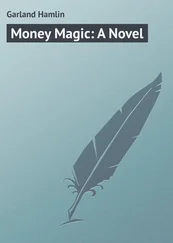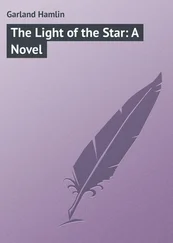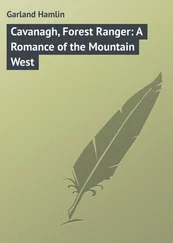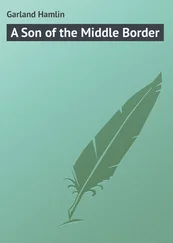On Sunday, Burton usually came to visit me or I went over to his house and together we rode or walked to service at the Grove school-house. He was now the owner of a razor, and I was secretly planning to buy one. The question of dress had begun to trouble us both acutely. Our best suits were not only made from woolen cloth, they were of blizzard weight, and as on week days (in summer) our entire outfit consisted of a straw hat, a hickory shirt and a pair of brown denim overalls you may imagine what tortures we endured when fully encased in our "Sunday best," with starched shirts and paper collars.
No one, so far as I knew, at that time possessed an extra, light-weight suit for hot-weather wear, although a long, yellow, linen robe called a "duster" was in fashion among the smart dressers. John Gammons, who was somewhat of a dandy in matters of toilet, was among the first of my circle to purchase one of these very ultra garments, and Burton soon followed his lead, and then my own discontent began. I, too, desired a duster.
Unfortunately my father did not see me as I saw myself. To him I was still a boy and subject to his will in matters of dress as in other affairs, and the notion that I needed a linen coat was absurd. "If you are too warm, take your coat off," he said, and I not only went without the duster, but suffered the shame of appearing in a flat-crown black hat while Burton and all the other fellows were wearing light brown ones, of a conical shape.
I was furious. After a period of bitter brooding I rebelled, and took the matter up with the Commander-in-Chief. I argued, "As I am not only doing a man's work on a boy's pay but actually superintending the stock and tools, I am entitled to certain individual rights in the choice of a hat."
The soldier listened in silence but his glance was stern. When I had ended he said, "You'll wear the hat I provide."
For the first time in my life I defied him. "I will not," I said. "And you can't make me."
He seized me by the arm and for a moment we faced each other in silent clash of wills. I was desperate now. "Don't you strike me," I warned. "You can't do that any more."
His face changed. His eyes softened. He perceived in my attitude something new, something unconquerable. He dropped my arm and turned away. After a silent struggle with himself he took two dollars from his pocket and extended them to me. "Get your own hat," he said, and walked away.
This victory forms the most important event of my fifteenth year. Indeed the chief's recession gave me a greater shock than any punishment could have done. Having forced him to admit the claims of my growing personality as well as the value of my services, I retired in a panic. The fact that he, the inexorable old soldier, had surrendered to my furious demands awed me, making me very careful not to go too fast or too far in my assumption of the privileges of manhood.
Another of the milestones on my road to manhood was my first employment of the town barber. Up to this time my hair had been trimmed by mother or mangled by one of the hired men,—whereas both John and Burton enjoyed regular hair-cuts and came to Sunday school with the backs of their necks neatly shaved. I wanted to look like that, and so at last, shortly after my victory concerning the hat, I plucked up courage to ask my father for a quarter and got it! With my money tightly clutched in my hand I timidly entered the Tonsorial Parlor of Ed Mills and took my seat in his marvellous chair—thus touching another high point on the road to self-respecting manhood. My pleasure, however, was mixed with ignoble childish terror, for not only did the barber seem determined to force upon me a shampoo (which was ten cents extra), but I was in unremitting fear lest I should lose my quarter, the only one I possessed, and find myself accused as a swindler.
Nevertheless I came safely away, a neater, older and graver person, walking with a manlier stride, and when I confronted my classmates at the Grove school-house on Sunday, I gave evidence of an accession of self-confidence. The fact that my back hair was now in fashionable order was of greatest comfort to me. If only my trousers had not continued their distressing habit of climbing up my boot-tops I would have been almost at ease but every time I rose from my seat it became necessary to make each instep smooth the leg of the other pantaloon, and even then they kept their shameful wrinkles, and a knowledge of my exposed ankles humbled me.
Burton, although better dressed than I, was quite as confused and wordless in the presence of girls, but John Gammons was not only confident, he was irritatingly facile. Furthermore, as son of the director of the Sunday school he had almost too much distinction. I bitterly resented his linen collars, his neat suit and his smiling assurance, for while we professed to despise everything connected with church, we were keenly aware of the bright eyes of Bettie and noted that they rested often on John's curly head. He could sing, too, and sometimes, with sublime audacity, held the hymn book with her.
The sweetness of those girlish faces held us captive through many a long sermon, but there were times when not even their beauty availed. Three or four of us occasionally slipped away into the glorious forest to pick berries or nuts, or to loaf in the odorous shade of the elms along the creek. The cool aisles of the oaks seemed more sweetly sanctifying (after a week of sun-smit soil on the open plain) than the crowded little church with its droning preacher, and there was something mystical in the melody of the little brook and in the flecking of light and shade across the silent woodland path.
To drink of the little ice-cold spring beneath the maple tree in Frazer's pasture was almost as delight-giving as the plate of ice-cream which we sometimes permitted ourselves to buy in the village on Saturday, and often we wandered on and on, till the sinking sun warned us of duties at home and sent us hurrying to the open.
It was always hard to go back to the farm after one of these days of leisure—back to greasy overalls and milk-bespattered boots, back to the society of fly-bedevilled cows and steaming, salty horses, back to the curry-comb and swill bucket,—but it was particularly hard during this our last summer on the prairie. But we did it with a feeling that we were nearing the end of it. "Next year we'll be living in town!" I said to the boys exultantly. "No more cow-milking for me!"
I never rebelled at hard, clean work, like haying or harvest, but the slavery of being nurse to calves and scrub-boy to horses cankered my spirits more and more, and the thought of living in town filled me with an incredulous anticipatory delight. A life of leisure, of intellectual activity seemed about to open up to me, and I met my chums in a restrained exaltation which must have been trying to their souls. "I'm sorry to leave you," I jeered, "but so it goes. Some are chosen, others are left. Some rise to glory, others remain plodders—" such was my airy attitude. I wonder that they did not roll me in the dust.
Though my own joy and that of my brother was keen and outspoken, I have no recollection that my mother uttered a single word of pleasure. She must have been as deeply excited, and as pleased as we, for it meant more to her than to us, it meant escape from the drudgery of the farm, from the pain of early rising, and yet I cannot be sure of her feeling. So far as she knew this move was final. Her life as a farmer's wife was about to end after twenty years of early rising and never ending labor, and I think she must have palpitated with joy of her approaching freedom from it all.
As we were not to move till the following March, and as winter came on we went to school as usual in the bleak little shack at the corner of our farm and took part in all the neighborhood festivals. I have beautiful memories of trotting away across the plain to spelling schools and "Lyceums" through the sparkling winter nights with Franklin by my side, while the low-hung sky blazed with stars, and great white owls went flapping silently away before us.—I am riding in a long sleigh to the north beneath a wondrous moon to witness a performance of Lord Dundreary at the Barker school-house.—I am a neglected onlooker at a Christmas tree at Burr Oak. I am spelled down at the Shehan school—and through all these scenes runs a belief that I am leaving the district never to return to it, a conviction which lends to every experience a peculiar poignancy of appeal.
Читать дальше
